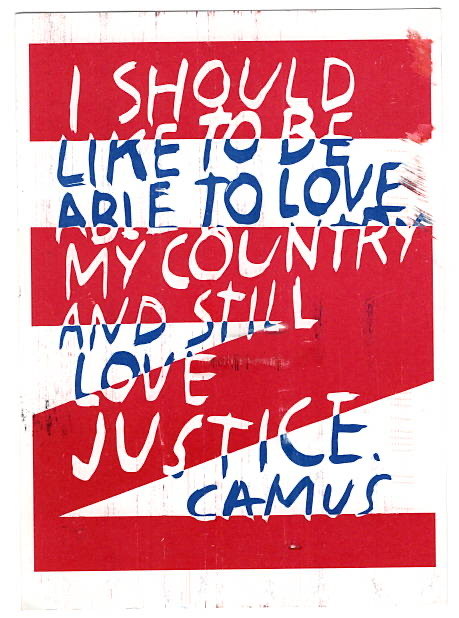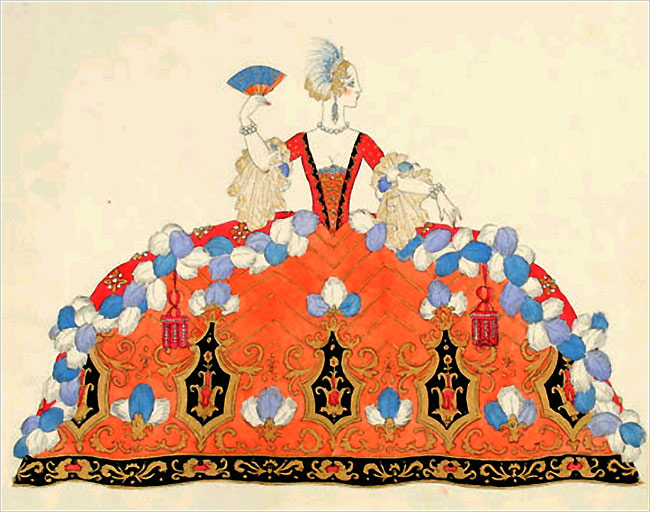Saturday, December 21, 2024
Tuesday, December 10, 2024
Cookie and her Christmas Bears by Judith Yates, 1988
Monday, December 9, 2024
Margie and her Christmas Frocks and Dolls by Pat Stall, ca. 1988
Wednesday, November 20, 2024
Friday, November 15, 2024
Albert Camus/The Center for the Study of Political Graphics
Thursday, November 14, 2024
Monday, November 11, 2024
Saturday, November 9, 2024
Tuesday, November 5, 2024
Sunday, November 3, 2024
Erté
"Defenceless under the night
Our world in stupor lies;
Yet, dotted everywhere,Ironic points of lightFlash out wherever the JustExchange their messages:May I, composed like themOf Eros and of dust,Beleaguered by the sameNegation and despair,Show an affirming flame."
Thursday, October 31, 2024
Monday, October 28, 2024
Ballet Russes
I can't remember where I found this image; it might very well be from a book or website that Sylvia Kleindinst shared with me. She loved the ballet and the gorgeous costumes.
Tuesday, October 22, 2024
Sunday, October 13, 2024
Dorita con sus vestidos ca. 1934
One of my finds at the paper doll convention in Indianapolis
The Child/Collection 5--Number 72 Dorita and her dresses.
Wednesday, September 25, 2024
Tuesday, September 10, 2024
Another Little Nemo's Bear, 1907
Sunday, September 8, 2024
At School, 1896
Tuesday, August 27, 2024
Think Pink! The 2025 Morgantown Luncheon
We hope you'll join us May 3rd, 2025
Wednesday, August 21, 2024
Paper Doll Heaven!
I’m still on the road —and on cloud nine—after attending the fabulous convention organized by Sharry and Micheal O’Hara and Beth and Kevin Wilkins.
When I get home (soon) I’ll have more pictures to share—and I’ll update this page with a PayPal button for those who want to attend the Morgantown luncheon in May.
“Think Pink!”
Sunday, August 11, 2024
Sister Nell Goes to a Party, 1925
Friday, July 19, 2024
Wednesday, July 10, 2024
Hoovies, Uncle Sam's Little Food Favors, 1918
"Cut-Outs for your table--They are to remind you that food will win the war"
Hoovies are not to be confused with Hoovervilles, but they marked the career of the same man: Herbert Hoover, the 31st president of the United States. His career is a reminder of the mercurial nature of political fortunes.When this cutout ran in the Seattle Sunday Times on May 5, 1918, Hoover was head of the U.S. Food Administration, appointed by President Woodrow Wilson. These "Hoovies" kept an eye on public consumption of wheat, sugar and meat, which were restricted as part of the World War I effort.
The Hoovies "know that while Americans one and all mean to save food, they sometimes get thoughtless and consume wheat and other things our soldiers need at a rate that endangers the fate of the nation."
Hoover's leadership in the Food Administration post extended beyond the war. He organized food shipments to millions starving in postwar Europe, including people in famine-stricken Russia.
Hoover's legacy changed after he became president. His name is forever linked with his government's failure to respond adequately to the Great Depression. "Hoovervilles" was the sardonic name given to encampments across the country that were erected by jobless and homeless people. President Hoover felt that "caring for them must be primarily a local and voluntary responsibility."
Updated link: Hoovervilles in Central Park.
Thursday, June 20, 2024
Weatherbird Shoe cutouts, 1920
I love it when a new paper doll takes me down a research rabbit hole.Did you know the Weatherbird is the longest continuously running newspaper cartoon? It is the mascot of the St. Louis Post-Dispatch:On February 11, 1901, the paper introduced a front-page feature called the "Weatherbird", a cartoon bird accompanying the daily weather forecast. "Weatherbird" is the oldest continuously published cartoon in the United States. Created by Harry B. Martin, who drew it through 1903, it has since been drawn by Oscar Chopin (1903–1910); S. Carlisle Martin (1910–1932); Amadee Wohlschlaeger (1932–1981); Albert Schweitzer, the first one to draw the Weatherbird in color (1981–1986); and Dan Martin (1986–present).[21]
That means the illustrator of this advertising cut-out is S. Carlisle Martin. It's copyrighted 1920 Peters Branch International Shoe Co.
Here's more from Wikipedia:
Weatherbird brand shoes for children, using pictures of the Weatherbird in advertising, were offered starting in 1901 by the St. Louis-based Peters Shoe Company, later part of International Shoe which continued to base the brand's image on the Weatherbird until 1932[13] (the brand itself continued at least through the 1950s).[14]
Two of the original windows from the Peters Shoe Company factory, featuring pictures of the Weatherbird, adorn the Weatherbird Cafe in the St. Louis Post-Dispatch office.
A life-size Weatherbird costume is used by the Post-Dispatch for promotions such as meet-and-greets at local bars.
Thursday, June 13, 2024
Sunday, June 9, 2024
Puerto Rican cutouts, 1959
When Christopher Columbus arrived on the Bahamian Island of Guanahani (San Salvador) in 1492, he encountered the Taíno people, whom he described in letters as "naked as the day they were born." The Taíno had complex hierarchical religious, political, and social systems. Skilled farmers and navigators, they wrote music and poetry and created powerfully expressive objects. At the time of Columbus’s exploration, the Taíno were the most numerous indigenous people of the Caribbean and inhabited what are now Cuba, Jamaica, Haiti, the Dominican Republic, Puerto Rico, and the Virgin Islands. By 1550, the Taíno were close to extinction, many having succumbed to diseases brought by the Spaniards. Taíno influences survived, however, and today appear in the beliefs, religions, language, and music of Caribbean cultures.
Monday, May 27, 2024
Wednesday, May 8, 2024
Dimple Dolls, ca. 1920s
Tuesday, April 30, 2024
Friday, April 5, 2024
Sunday, March 31, 2024
Friday, March 29, 2024
Big Online Paper Doll Auction!
BIG ONLINE PAPER DOLL AUCTION APRIL 2nd - BIDDING IS OPEN NOW
Wednesday, March 20, 2024
Chiquet paper doll, Child Life Magazine, March 1930

Saturday, March 9, 2024
Tuesday, February 27, 2024
Muñecas Movibles, Editorial Roma, Barcelona ca. 1955
an association founded in Barcelona in October 1993, as one of the activities of the Casa Golferichs civic center, located on Barcelona's Gran Vía.The journey began with fifteen members, presenting the regulations that were duly approved by the Generalitat of Catalonia.Joguetmaniatics begins its activities by presenting at fairs throughout Spain, since its partners come from all corners of Spain.The objective of the association is to promote the collecting of antique toys, encourage their study and research, as well as provide support to its members and all people interested in the subject.Being a non-profit association, the members are not dedicated to the public appraisal of toys, but to the dissemination and dissemination of antique toys.



















































